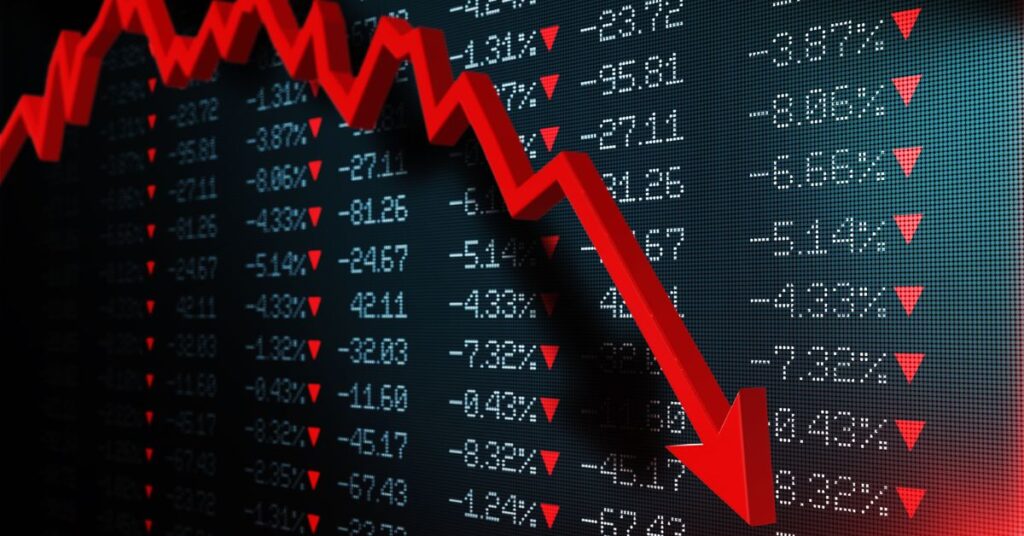

These economic indicators are updated daily therefore it is important that your broker sends them straight away! We understand it can be difficult sometimes dealing with data overloads especially when one is an individual trader – but give us the data that helps you keep everything organized and interpret what is going on.
Understanding Economic Indicators
Economic indicators report points of data that are statistical which measure different features of economic operations in a country. These are indicators which can be used to show how the economy is doing. By doing so, one can tell whether consumer spending power is enough, if employment rates are high or low, how much would inflation affect things like company profits or share prices among others.
GDP Growth Rate: The Backbone of Economic Strength
Gross Domestic Product (GDP) is probably the most recognized economic measure as it represents the total value of goods and services produced within a country during a specific period.
Generally, increasing GDP is associated with economic growth, elevated consumer spending and enhanced corporate earnings – factors that are likely to lead to a rise in stock prices. Nevertheless, falling GDP may signal an imminent recession that should make stock analysts think again.
The Heartbeat of Consumer Spending
Investors pay close attention to measures of job creation, such as employment levels, joblessness rates, and pay patterns. In turn, an abundant labor market with more hires and improved incomes results in enhanced purchasing ability among consumers, thus pushing up revenues for businesses and share prices of these companies.
Imagine for instance, in 2020 during COVID-19 outbreak there was a massive layoff among Americans leading to reduced consumer spending. Some of these companies that mainly serve customers were also
Inflation Gauges: Friend or Foe?
Stocks can be impacted by inflation, for example, when looking at indicators such as the Consumer Price Index (CPI) and the Producers’ Price Index (PPI). In general, mild inflation is seen as a sign of good overall economic activity with companies able to raise prices without immediately altering demand.
When there is too much inflation, consumers lose out because their money can’t buy as much companies don’t make any profit because prices remain the same- healthy growth is restricted. This eventually results into fall in share values since sellers must sell even when there are no buyers hence reducing share value. In the 70s and 80s hyperinflation made fed increase its rates thereby causing economic decline and poor performance on Wall Street.
Interest Rate Movements

The Federal Reserve makes decisions about its monetary policy and affects interest rates which in turn have a big impact on the way the stock market behaves. If interest rates go up, it becomes more costly for business as well as individuals to borrow money thus leading to a possible slowdown in economic growth as well as falling stock prices.
Conversely, lowering interest rates can stimulate economic activity by making it cheaper to borrow and invest. This can fuel stock market rallies, particularly in sectors that benefit from increased lending and spending, such as housing, automotive, and consumer discretionary.
The Federal Reserve cut its rates almost to zero during the financial crisis that occured in 2008 in an attempt to boost the economy an intervention that greatly contributed to the improvement of the stock market after its massive fall.
Consumer Metrics: The Pulse of Spending Power
Indicators relating to consumers , for instance:
- Consumer Confidence Index: One way through which a household expresses faith in its finances and the economy in general.
- Retail Sales: A gauge of consumer spending on goods and services.
- Personal Income and Spending: Tracks changes in household income and expenditures.
These measurements provide useful perceptions about how strong consumers’ Purchasing Power is; they represent much of the economic activities (Crozet & Milet, 2004). A rise in the individual trust together with increase in salaries usually results to more spending thus raising profitability for companies thereby increasing their share values.
However, consumers usually reduce their spending during periods of economic instability or recession and this may bring about undervaluation of stocks in sectors focusing on consumption.
Housing Data: A Barometer for the Economy
The housing market is closely related with the overall economy and stock market conditions, which means that key housing indicators include following items:
- New Home Sales:A way of newly made homes purchased.
- Existing Home Sales: Keep an eye on the sale of existing houses
- Housing Starts:The number of new residential construction projects began.
- Builder Sentiment: A gauge of confidence among home builders.
A strong housing market usually indicates a sound economic situation since it revolves around a variety of sectors ranging from construction through banking up to home decoration and appliances; on the other hand, a decline in residential investment has an impact on a series of other industries leading to related movements in stock prices.
Excessive speculation and loose lending practices fuelled the eventual crash that occurred during the housing bubble before the 2008 financial crisis, leading to a severe recession and a bear market in stocks that lasted for long.
Interpreting Mixed Economic Signals
Sometimes, the economy gives conflicting indicators; some pointing to expansion while others imply there may be a decline or no change at all. Besides, these situations require one to analyze surrounding dynamics besides specific figures.
Take for example the COVID-19 pandemic, which led to a massive decline in the level of employment. Nonetheless, the corresponding consumer spending was buoyant due to the government’s financial help and migration to online trade. In this scenario, financiers had to consider the various sectors’ prospective long-term effects and change tact as necessary.
The most critical thing about successful investing is not reading the indicators themselves but understanding how they relate to each other and together shape the economy.
Investors’ maneuvering through the labyrinth of the stock market may be facilitated by monitoring multiple detailed economic indicators to understand how they relate to one another.
Conclusion
Traders observe symptoms in order to guide them on how well or where an economy goes. Economic performance indicators reveal the state and potential direction of an economy. GDP growth rates, employment statistics, inflation levels as measured through changes in consumer prices and movements in rates lend powerful tools for understanding how stock markets behave.
In mind, the elements that enable an informed decision-making process are always kept at the forefront by any investor interested in enhancing their successfulness on an ever-evolving stock market. Always remember that investing involves learning while doing it, being able to adapt continuously; possible ways not to get lost or lose time could be paying attention to economic indicators.
FAQ,s
Which economic indicators affect the stock market?
Economic indicators that affect the stock market include interest rates, inflation rates, GDP growth, unemployment rates, and consumer confidence levels. These indicators influence investor sentiment and expectations about future economic performance.
What is the economic impact of stock market?
The stock market influences economic growth by facilitating capital formation, investment, and wealth creation, which in turn drive consumer spending and business expansion. Additionally, it serves as a barometer for economic health, affecting investor confidence and monetary policies.
What are economic factors that affect stock price?
Economic factors that affect stock prices include interest rates, which influence borrowing costs and corporate profits, and inflation rates, which impact consumer purchasing power and business expenses. Additionally, GDP growth rates and unemployment levels play significant roles in shaping investor sentiment and market performance.
What are 5 economic indicators of an economy?
Five economic indicators of an economy are Gross Domestic Product (GDP), unemployment rate, inflation rate, consumer confidence index, and retail sales.

